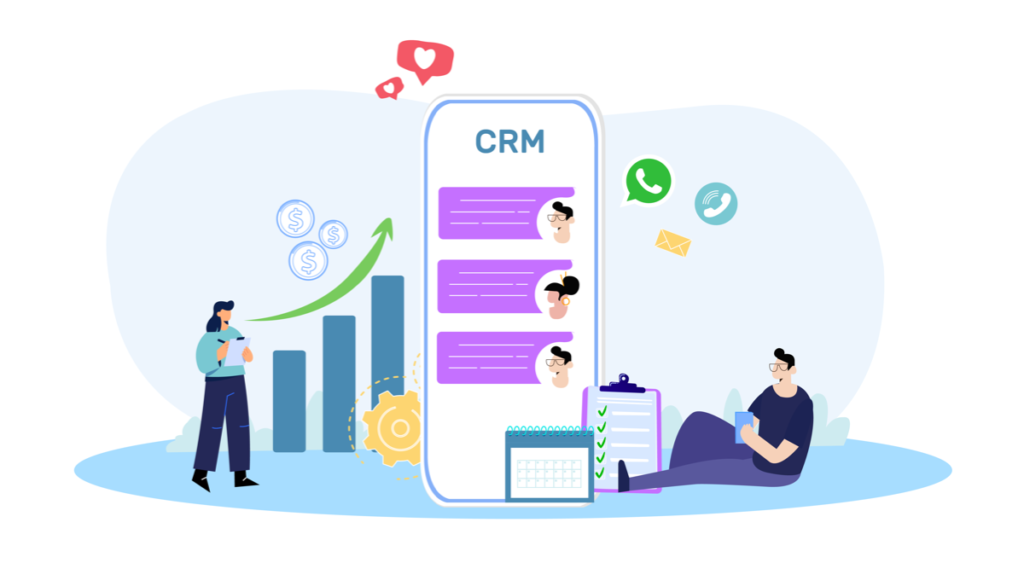CRM (Customer Relationship Management) software is an essential tool for businesses that want to manage their interactions with customers and streamline their sales process. While both mobile and computer CRM have their advantages and disadvantages, it’s important to understand the key differences between the two.
Mobile CRM is designed to be used on mobile devices such as smartphones and tablets. It allows salespeople to access customer data, manage leads, and update their sales pipeline on the go. This is particularly useful for field salespeople who spend a lot of time outside the office. Mobile CRM can be used to schedule appointments, send follow-up emails, and even make sales calls. Additionally, mobile CRM can sync data with a company’s computer CRM, allowing salespeople to access the same information on both platforms.
Computer CRM, on the other hand, is designed to be used on desktop or laptop computers. It typically offers more advanced features than mobile CRM, such as advanced reporting and analytics, and integrations with other business tools. Computer CRM is often used by sales managers and other team members who work primarily in an office environment. Computer CRM can be used to manage customer data, track sales performance, and analyze sales data.
The choice between mobile and computer CRM depends on the specific needs of the business and its sales team. Mobile CRM offers greater flexibility and mobility, which can be especially important for salespeople who are frequently on the go. Mobile CRM allows salespeople to access customer data and update their sales pipeline from anywhere. However, mobile CRM may not offer the same advanced features as computer CRM, such as complex reporting and analytics.
Computer CRM, on the other hand, offers more advanced features and integration options. It can be used to manage customer data, track sales performance, and analyze sales data. Additionally, computer CRM can integrate with other business tools, such as email marketing software and accounting software. This can be particularly useful for businesses that rely on these tools to manage their sales process.
In conclusion, both mobile and computer CRM have their advantages and disadvantages, depending on the needs of the business. Mobile CRM offers greater flexibility and mobility, while computer CRM offers more advanced features and integration options. Ultimately, the choice between mobile and computer CRM depends on the specific needs of the business and its sales team.
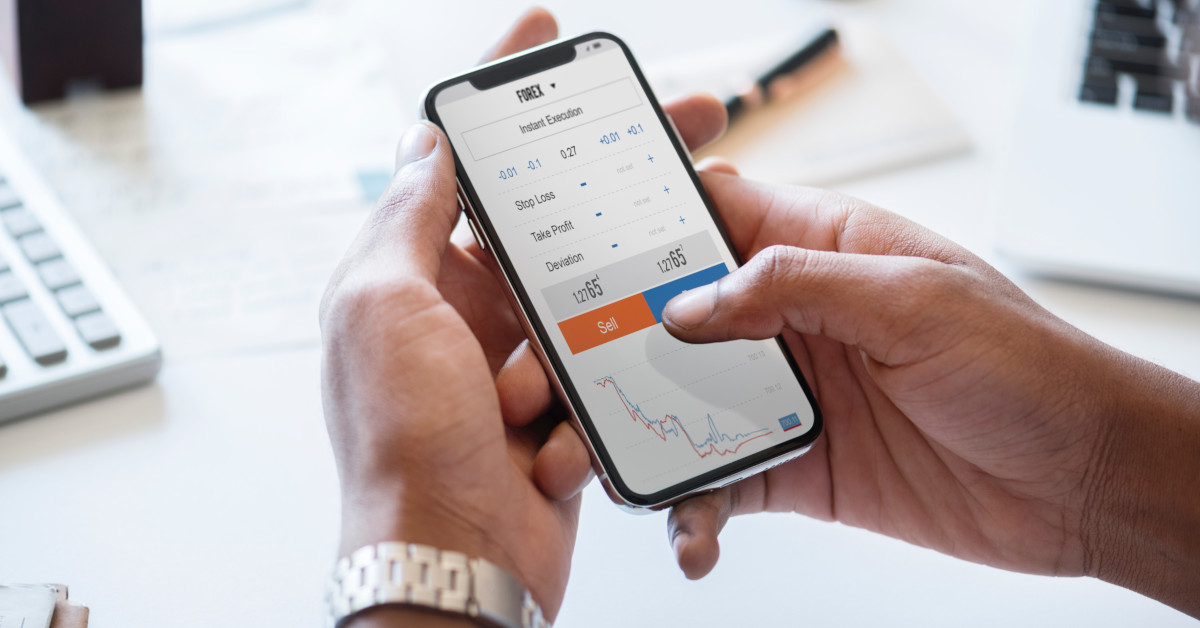
What is Mobile CRM ?
Mobile CRM (Customer Relationship Management) is a software solution that allows businesses to manage customer interactions and sales processes on mobile devices such as smartphones and tablets. With the rise of remote work and the increasing importance of mobility in business, mobile CRM has become an essential tool for sales teams and customer service representatives.
Mobile CRM offers salespeople the ability to access customer data, manage leads, and update their sales pipeline from anywhere. This can be especially useful for field salespeople who spend a lot of time on the road or outside of the office. Mobile CRM can also help sales teams collaborate more effectively by providing real-time updates and allowing team members to share information with each other.
Mobile CRM solutions can include features such as lead management, contact management, task management, and calendar integration. Some mobile CRM solutions also offer advanced features such as offline access, location tracking, and mobile analytics.
Overall, mobile CRM provides sales teams with greater flexibility and mobility, allowing them to manage their sales process more effectively from anywhere. By enabling sales teams to access customer data and manage leads on the go, mobile CRM can help businesses increase sales productivity and improve customer satisfaction.
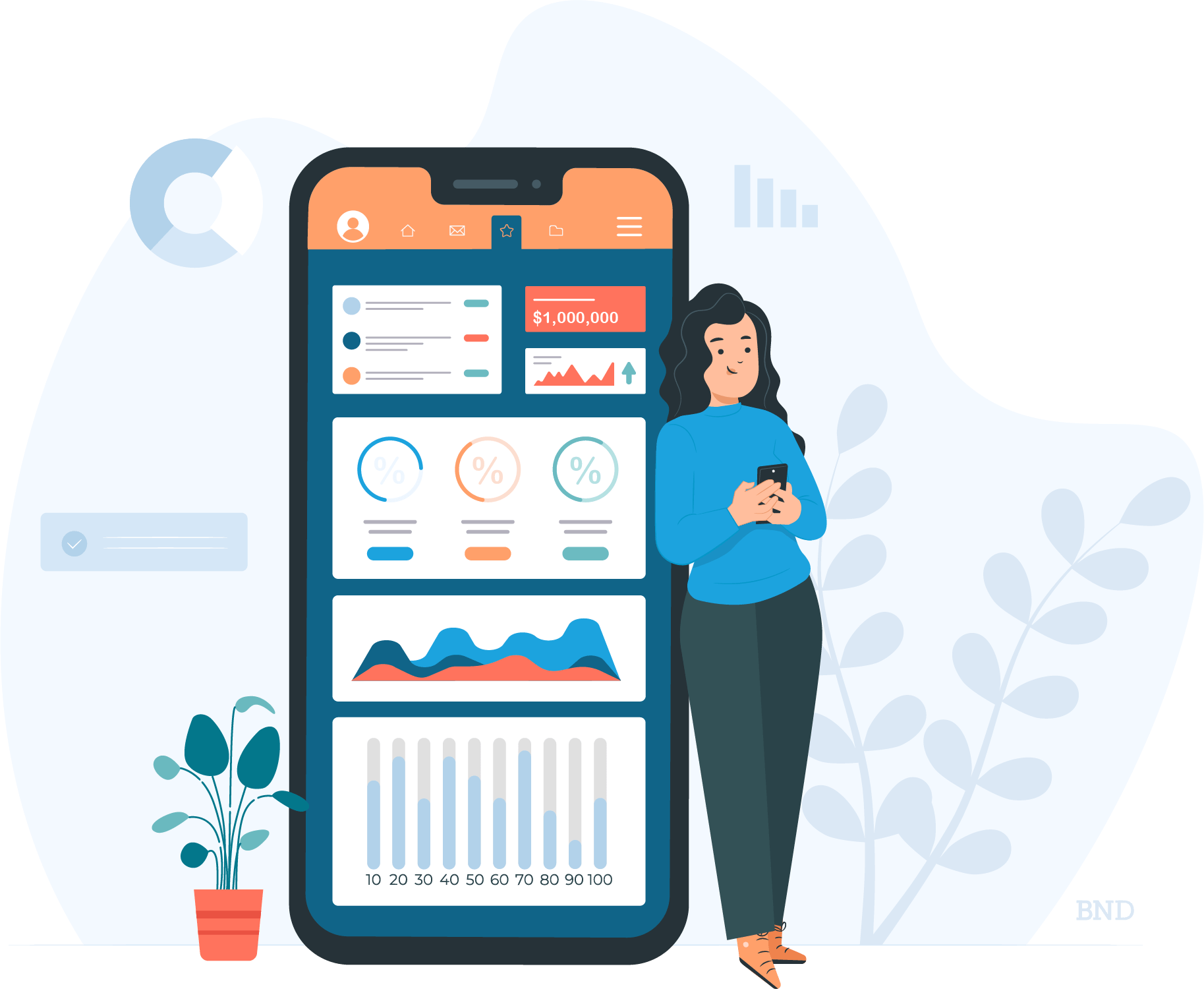
What are the Benefits of Mobile CRM ?
Mobile CRM (Customer Relationship Management) offers many benefits for businesses and sales teams, including:
- Increased mobility and flexibility : With mobile CRM, salespeople can access customer data and manage leads from anywhere, allowing them to work more efficiently and effectively.
- Improved collaboration : Mobile CRM allows team members to share information and collaborate in real-time, improving communication and coordination.
- Enhanced productivity : Mobile CRM can help sales teams manage their time more effectively by providing real-time updates, task management, and calendar integration.
- Better customer service : Mobile CRM enables salespeople to provide better customer service by accessing customer data and history on the go, allowing them to personalize interactions and provide timely follow-up.
- Higher sales conversion rates : Mobile CRM can help sales teams close more deals by providing access to critical information and insights in real-time.
- Improved data accuracy : Mobile CRM eliminates the need for manual data entry and reduces the risk of errors, ensuring that customer data is accurate and up-to-date.
- Cost-effective : Mobile CRM solutions are often more affordable than traditional CRM solutions and can provide a higher return on investment.
Overall, mobile CRM can help businesses increase sales productivity, improve customer satisfaction, and boost revenue by enabling sales teams to work more efficiently and effectively.

Why do we need a Mobile CRM ?
There are several reasons why businesses need a mobile CRM (Customer Relationship Management) solution:
- Increased mobility : With mobile CRM, sales teams can access customer data and manage leads from anywhere, allowing them to work more efficiently and effectively.
- Real-time data : Mobile CRM enables salespeople to access customer data in real-time, allowing them to make informed decisions on the go.
- Better collaboration : Mobile CRM allows team members to share information and collaborate in real-time, improving communication and coordination.
- Improved customer service : Mobile CRM enables salespeople to provide better customer service by accessing customer data and history on the go, allowing them to personalize interactions and provide timely follow-up.
- Higher sales conversion rates : Mobile CRM can help sales teams close more deals by providing access to critical information and insights in real-time.
- Enhanced productivity : Mobile CRM can help sales teams manage their time more effectively by providing real-time updates, task management, and calendar integration.
Overall, mobile CRM can help businesses increase sales productivity, improve customer satisfaction, and boost revenue by enabling sales teams to work more efficiently and effectively, even when they are on the go. With the increasing trend towards remote work, mobile CRM has become even more essential for businesses to maintain their sales performance and keep up with their customers’ expectations.

What are the Features of Mobile CRM ?
Mobile CRM (Customer Relationship Management) refers to the use of mobile devices such as smartphones or tablets to manage customer interactions, sales processes, and other business-related activities. Here are some key features of mobile CRM:
- Real-time access to customer information : Mobile CRM allows sales representatives to access and update customer information on-the-go, which improves the accuracy and timeliness of data.
- Task management : Mobile CRM enables sales reps to manage their schedules, appointments, and tasks efficiently. They can prioritize tasks, set reminders, and track progress.
- Sales forecasting and reporting : With mobile CRM, sales managers can access real-time data on sales activities, track progress, and forecast future sales. This helps them make informed decisions.
- Communication tools : Mobile CRM offers communication tools like email, messaging, and video conferencing that facilitate communication between sales reps and customers.
- Analytics and insights : Mobile CRM provides analytical tools to generate reports and insights on customer behavior, sales trends, and performance metrics. This helps businesses make data-driven decisions.
- Integration with other tools : Mobile CRM integrates with other business tools like marketing automation, accounting, and inventory management systems to provide a comprehensive view of customer interactions.
Overall, mobile CRM improves sales efficiency, customer engagement, and business performance by providing anytime, anywhere access to customer information and sales-related data.

How Mobile CRM Work ?
Mobile CRM (Customer Relationship Management) works by enabling sales representatives and other business professionals to access customer data and manage sales processes on their mobile devices, such as smartphones or tablets. Here’s how it works:
- Mobile CRM software : Businesses typically use mobile CRM software that is optimized for mobile devices. This software allows users to access customer data, manage tasks, and perform other business-related activities on-the-go.
- Data synchronization : Mobile CRM software syncs with the company’s central CRM system, ensuring that all customer data is up-to-date and accessible across devices. This helps sales reps make informed decisions and take actions based on the latest information.
- Mobile-friendly interface : Mobile CRM software is designed with a user-friendly interface optimized for mobile devices. This ensures that sales reps can easily navigate the software and access the information they need while on-the-go.
- Mobile-specific features : Mobile CRM software also includes mobile-specific features such as location tracking, offline access, and push notifications. These features help sales reps stay on top of their tasks and respond quickly to customer inquiries and opportunities.
- Integration with other systems : Mobile CRM can integrate with other business systems like marketing automation and inventory management software. This allows businesses to have a comprehensive view of customer interactions and sales-related data across all systems.
Overall, mobile CRM streamlines sales processes, improves customer engagement, and enables sales reps to work more efficiently from anywhere.
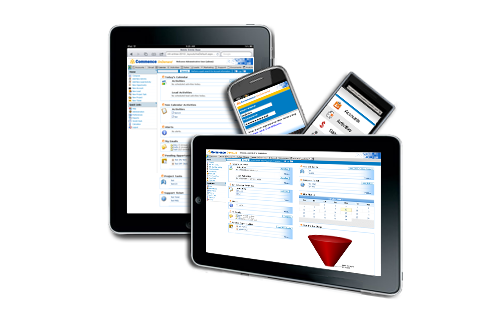
Where Mobile CRM Is Used ?
Mobile CRM (Customer Relationship Management) is used in various industries to streamline sales processes, improve customer engagement, and enable sales reps to work more efficiently from anywhere. Here are some of the industries where mobile CRM is commonly used:
- Retail : Mobile CRM is used by retail businesses to manage customer interactions, track sales, and improve customer experience. Sales reps can access customer data and inventory information on-the-go, enabling them to provide personalized recommendations and improve customer satisfaction.
- Healthcare : Healthcare organizations use mobile CRM to manage patient interactions, track appointments, and manage healthcare delivery processes. Doctors and nurses can access patient information, update medical records, and communicate with patients and colleagues from their mobile devices.
- Real estate : Real estate agents use mobile CRM to manage property listings, track leads, and communicate with clients. They can access property data, schedule appointments, and communicate with clients from their mobile devices, enabling them to close deals faster.
- Banking and finance : Mobile CRM is used by banks and financial institutions to manage customer interactions, track sales, and provide personalized financial advice. Financial advisors can access customer data, track investment portfolios, and communicate with clients from their mobile devices.
- Manufacturing : Manufacturing companies use mobile CRM to manage customer interactions, track orders, and improve supply chain management. Sales reps can access inventory data, track orders, and communicate with suppliers from their mobile devices, enabling them to improve customer satisfaction and increase sales.
Overall, mobile CRM is a versatile tool that can be used by businesses across industries to streamline sales processes, improve customer engagement, and enable sales reps to work more efficiently from anywhere.
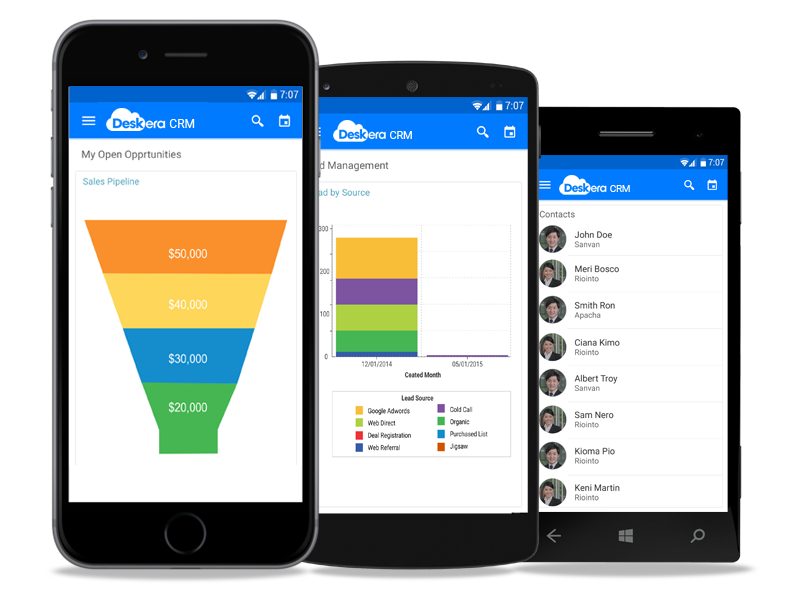
What is Computer CRM ?
Computer CRM (Customer Relationship Management) is a software solution designed for desktop or laptop computers that allows businesses to manage customer interactions and sales processes. It typically offers more advanced features than mobile CRM, such as advanced reporting and analytics, and integrations with other business tools.
Computer CRM is often used by sales managers and other team members who work primarily in an office environment. It can be used to manage customer data, track sales performance, and analyze sales data. Computer CRM can also integrate with other business tools, such as email marketing software and accounting software.
Computer CRM solutions can include features such as lead management, contact management, task management, and reporting and analytics. Some computer CRM solutions also offer advanced automation features, such as automated email campaigns and lead scoring.
Computer CRM is an essential tool for businesses that want to streamline their sales processes and improve their customer relationships. It allows sales teams to manage customer data and sales performance in a centralized location, making it easier to identify trends and opportunities. Additionally, computer CRM can help businesses make data-driven decisions by providing real-time insights into customer behavior and sales performance.

What are the Benefits of Computer CRM ?
Computer CRM (Customer Relationship Management) offers several benefits for businesses, including:
- Centralized data management : Computer CRM allows businesses to store customer data in a centralized location, making it easier to manage and access customer information.
- Improved collaboration : Computer CRM enables teams to share information and collaborate more effectively, leading to improved communication and productivity.
- Advanced reporting and analytics : Computer CRM provides detailed reporting and analytics, allowing businesses to gain insights into their sales performance and customer behavior.
- Increased efficiency : Computer CRM automates many tasks, reducing the time and effort required for manual data entry and administration.
- Enhanced customer relationships : Computer CRM allows businesses to provide personalized interactions with customers by storing and analyzing their data, leading to improved customer satisfaction and loyalty.
- Integration with other business tools : Computer CRM can be integrated with other business tools, such as email marketing software and accounting software, creating a more streamlined workflow.
- Scalability : Computer CRM can grow with a business, accommodating more customers, data, and users as the business expands.
Overall, computer CRM provides businesses with a powerful tool for managing their customer relationships and sales processes. It enables businesses to make data-driven decisions, automate many tasks, and provide better customer service, leading to increased efficiency and revenue.

Why do we need a Computer CRM ?
Computer CRM (Customer Relationship Management) provides a range of benefits that make it essential for businesses to adopt. Here are some of the key reasons why businesses need a computer CRM:
- Centralized database : Computer CRM provides a centralized database of customer data, enabling businesses to manage customer interactions, track sales, and analyze customer behavior more effectively.
- Sales automation : Computer CRM automates sales processes, such as lead tracking, sales forecasting, and pipeline management, improving sales efficiency and enabling sales reps to close deals faster.
- Marketing automation : Computer CRM includes marketing automation tools such as email marketing, social media management, and campaign tracking, enabling businesses to create and manage targeted marketing campaigns and track campaign performance.
- Analytics and reporting : Computer CRM provides analytical tools to generate reports and insights on customer behavior, sales trends, and performance metrics, enabling businesses to make data-driven decisions and optimize sales processes.
- Customer service and support : Computer CRM includes tools for customer service and support, such as case management and ticket tracking, enabling businesses to provide timely and efficient support to customers and ensure high levels of customer satisfaction.
- Integration with other tools : Computer CRM integrates with other business tools such as accounting software, inventory management systems, and marketing automation tools, providing a comprehensive view of customer interactions and sales-related data across all systems.
Overall, computer CRM enables businesses to manage customer interactions, improve sales processes, and increase revenue by providing a centralized database of customer data, automating sales and marketing processes, providing analytical tools to make informed decisions, and enabling businesses to provide timely and efficient customer service and support.

What are the Features of Computer CRM ?
Computer CRM (Customer Relationship Management) refers to the use of computer-based software to manage customer interactions, sales processes, and other business-related activities. Here are some key features of computer CRM:
- Contact management : Computer CRM allows businesses to store customer information, such as contact details, demographics, and preferences, in a centralized database. This helps businesses manage customer interactions and tailor their sales approach to individual customers.
- Sales automation : Computer CRM automates sales processes, such as lead tracking, sales forecasting, and pipeline management. This helps businesses improve sales efficiency and increase revenue.
- Marketing automation : Computer CRM includes marketing automation tools such as email marketing, social media management, and campaign tracking. This helps businesses create and manage targeted marketing campaigns to reach and engage with customers.
- Analytics and reporting : Computer CRM provides analytical tools to generate reports and insights on customer behavior, sales trends, and performance metrics. This helps businesses make data-driven decisions and optimize their sales processes.
- Customer service and support : Computer CRM includes tools for customer service and support, such as case management and ticket tracking. This helps businesses provide timely and efficient support to customers.
- Integration with other tools : Computer CRM integrates with other business tools such as accounting software, inventory management systems, and marketing automation tools. This provides a comprehensive view of customer interactions and sales-related data across all systems.
Overall, computer CRM helps businesses manage customer interactions, improve sales efficiency, and increase revenue by providing a centralized database of customer information, automating sales and marketing processes, and providing analytical tools to make data-driven decisions.
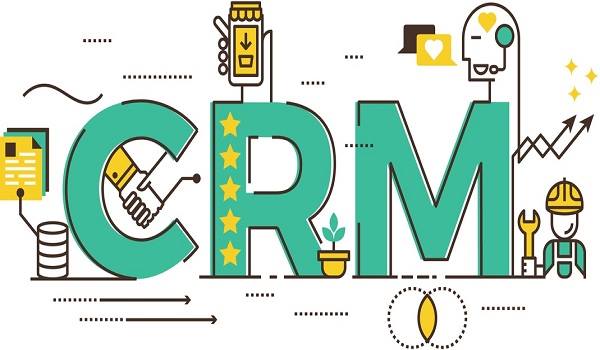
How Computer CRM Work ?
Computer CRM (Customer Relationship Management) works by using software to manage customer interactions, sales processes, and other business-related activities. Here’s how it works:
- Data collection and management : Businesses collect and store customer data in a centralized database, including contact details, purchase history, preferences, and other relevant information. This data is managed and organized in a way that makes it easily accessible for sales reps and other business professionals.
- Sales automation : Computer CRM automates sales processes, such as lead tracking, sales forecasting, and pipeline management. This helps businesses improve sales efficiency and increase revenue by providing a clear overview of the sales process and automating repetitive tasks.
- Marketing automation : Computer CRM includes marketing automation tools such as email marketing, social media management, and campaign tracking. This helps businesses create and manage targeted marketing campaigns to reach and engage with customers, track campaign performance, and optimize marketing strategies.
- Analytics and reporting : Computer CRM provides analytical tools to generate reports and insights on customer behavior, sales trends, and performance metrics. This helps businesses make data-driven decisions and optimize their sales processes by analyzing customer data and identifying areas for improvement.
- Customer service and support : Computer CRM includes tools for customer service and support, such as case management and ticket tracking. This helps businesses provide timely and efficient support to customers, resolving issues quickly and ensuring high levels of customer satisfaction.
- Integration with other tools : Computer CRM integrates with other business tools such as accounting software, inventory management systems, and marketing automation tools. This provides a comprehensive view of customer interactions and sales-related data across all systems, improving efficiency and effectiveness.
Overall, computer CRM streamlines sales processes, improves customer engagement, and enables businesses to make data-driven decisions by providing a centralized database of customer information, automating sales and marketing processes, and providing analytical tools to make informed decisions.
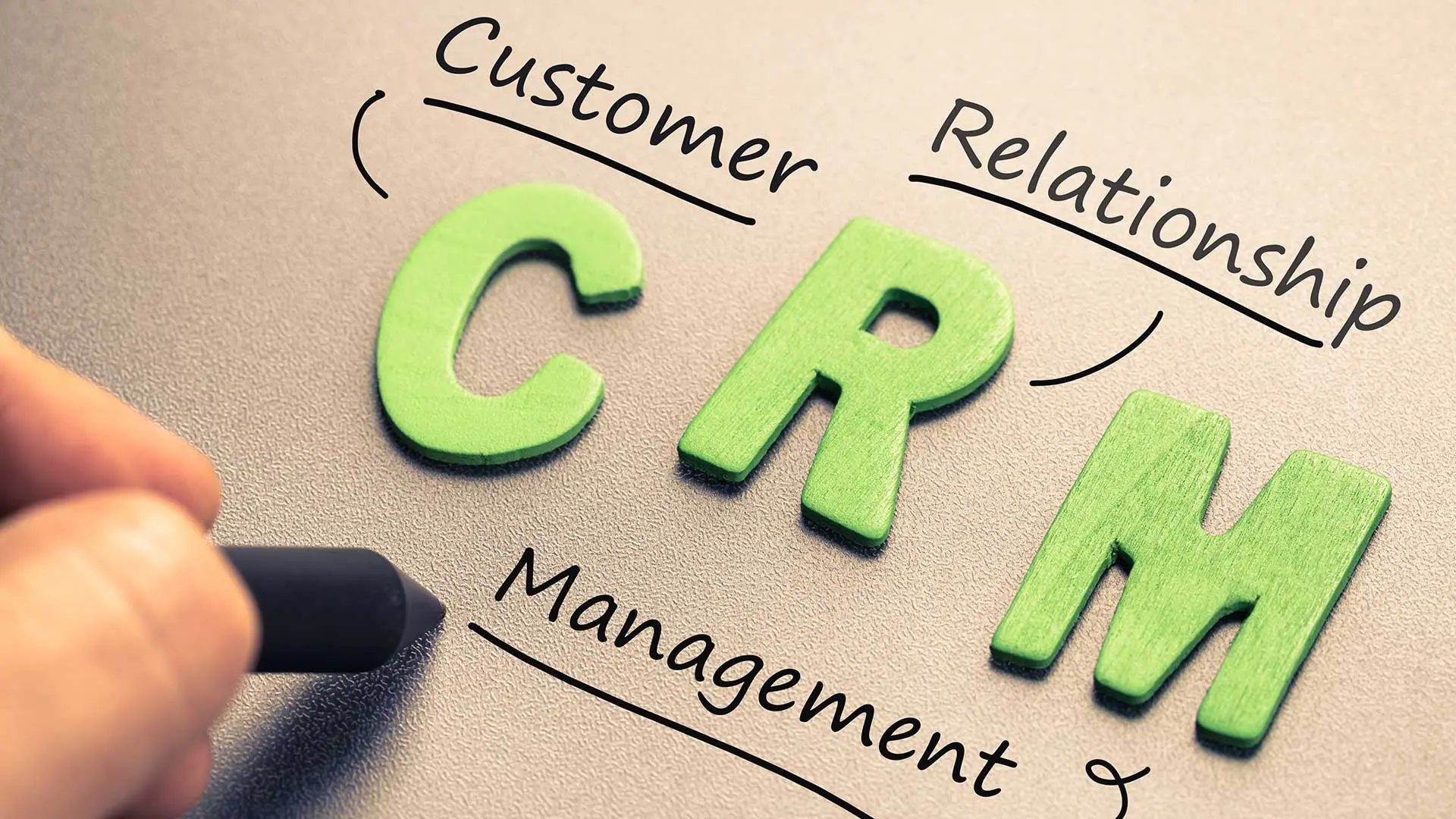
Where Computer CRM Is Used ?
Computer CRM (Customer Relationship Management) is used in various industries to manage customer interactions, improve sales processes, and increase revenue. Here are some of the industries where computer CRM is commonly used:
- Retail : Computer CRM is used by retailers to manage customer interactions, track sales, and improve customer experience. Sales reps can access customer data and inventory information on the computer, enabling them to provide personalized recommendations and improve customer satisfaction.
- Healthcare : Healthcare organizations use computer CRM to manage patient interactions, track appointments, and manage healthcare delivery processes. Doctors and nurses can access patient information, update medical records, and communicate with patients and colleagues from their computer.
- Real estate : Real estate agents use computer CRM to manage property listings, track leads, and communicate with clients. They can access property data, schedule appointments, and communicate with clients from their computer, enabling them to close deals faster.
- Banking and finance : Computer CRM is used by banks and financial institutions to manage customer interactions, track sales, and provide personalized financial advice. Financial advisors can access customer data, track investment portfolios, and communicate with clients from their computer.
- Manufacturing : Manufacturing companies use computer CRM to manage customer interactions, track orders, and improve supply chain management. Sales reps can access inventory data, track orders, and communicate with suppliers from their computer, enabling them to improve customer satisfaction and increase sales.
Overall, computer CRM is a versatile tool that can be used by businesses across industries to streamline sales processes, improve customer engagement, and enable sales reps to work more efficiently.
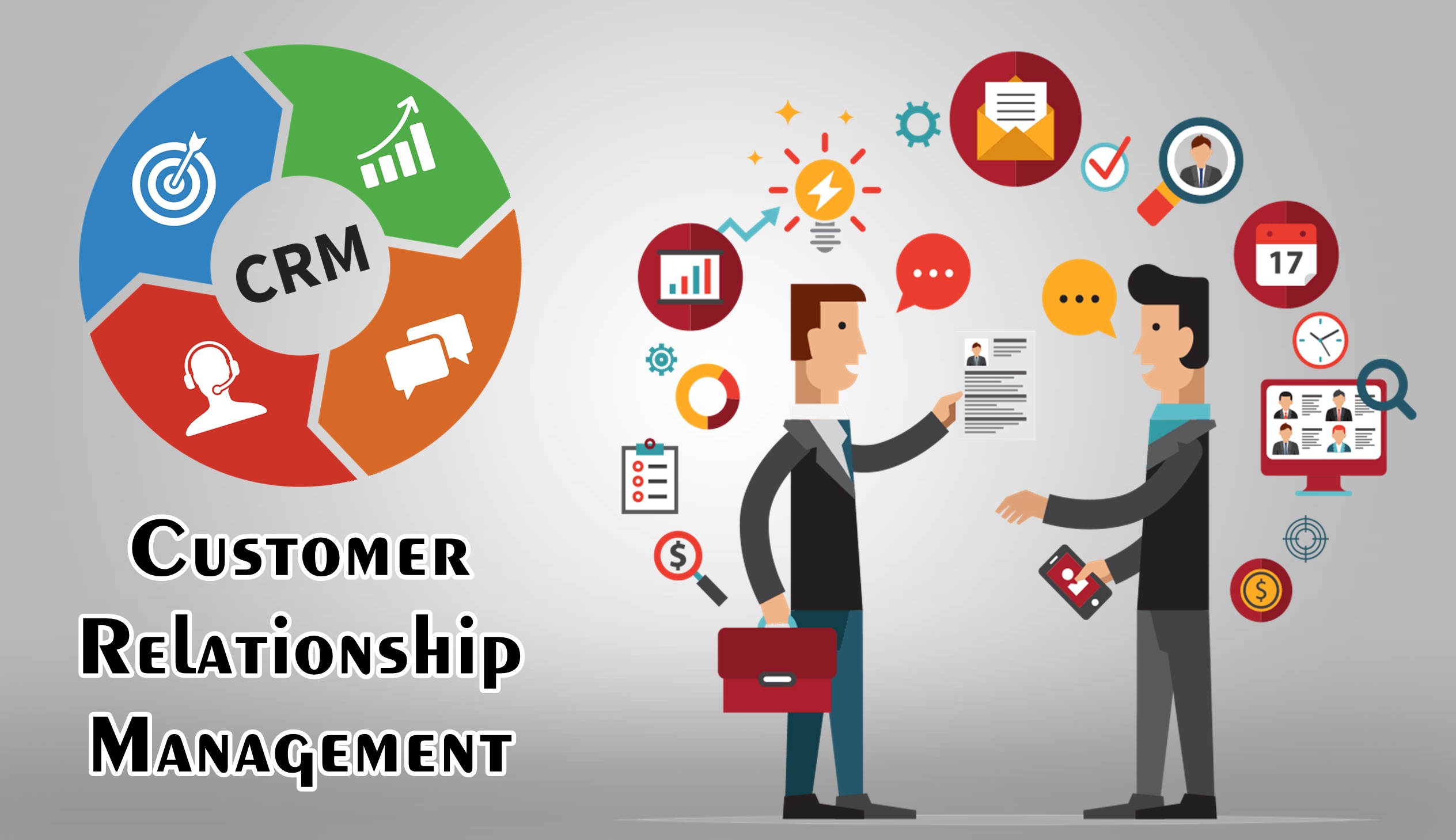
What are the Difference Between Mobile CRM and Computer CRM ?
CRM (Customer Relationship Management) is a technology-driven approach to managing interactions with customers and prospects. It involves using data and software to analyze customer interactions and behaviors in order to improve business relationships and customer retention.
The main difference between mobile CRM and computer CRM lies in the platforms used to access the software. Computer CRM is accessed through desktop or laptop computers, while mobile CRM is accessed through smartphones or tablets.
Mobile CRM offers the advantage of being able to access customer information on-the-go, which is useful for sales representatives or field employees who need to access customer data while on the road. Mobile CRM applications also tend to be more user-friendly and offer simpler interfaces, as they are designed to be used on smaller screens and with touch-based input.
On the other hand, computer CRM systems tend to have more advanced features and functionality, as they are designed for use by a broader range of employees within an organization. They may also offer more robust reporting and analytics capabilities.
Overall, both mobile and computer CRM systems have their advantages and disadvantages, and the choice between them will depend on the specific needs and use cases of a given organization. Some organizations may opt for a hybrid approach that utilizes both mobile and computer CRM systems to maximize the benefits of each.

Conclusion :
In conclusion, both mobile CRM and computer CRM have their own unique advantages and play a crucial role in managing customer relationships and sales processes.
Mobile CRM provides sales teams with the flexibility to access customer data and manage leads on the go, increasing productivity, improving collaboration, and enhancing customer service. It is especially useful for sales teams that work remotely or frequently travel.
On the other hand, computer CRM provides businesses with a centralized database of customer information, advanced reporting and analytics, and automation capabilities. It is ideal for businesses that require a comprehensive view of their customers and want to streamline their sales processes.
Ultimately, the choice between mobile CRM and computer CRM depends on a business’s specific needs, resources, and workflows. Some businesses may benefit more from a mobile CRM that allows their sales teams to be more flexible, while others may require the advanced features of a computer CRM to manage large amounts of data and automate their sales processes. Both mobile CRM and computer CRM are powerful tools that can help businesses improve their sales performance, boost customer satisfaction, and increase revenue.

